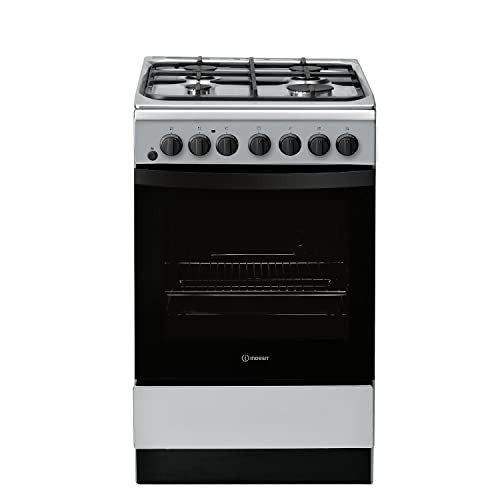The Comprehensive Guide to Sales Ovens: Understanding Their Importance, Types, and Best Practices
Sales ovens, a category of industrial cooking devices, are crucial players in the cooking and foodservice industry. These devices, designed to prepare food in big amounts efficiently, are important in restaurants, catering services, and other food facilities. This short article digs into the importance of sales ovens, their types, and best practices for picking and using them successfully.
What Are Sales Ovens?
Sales ovens, broadly specified, are cooking devices utilized mostly in commercial kitchen areas to prepare, bake, or heat numerous food products at scale. Their style enables them to manage higher volume cooking compared to basic domestic ovens. Provided the nature of food service, sales ovens typically include innovative innovations that promote speed, efficiency, and even cooking.
Importance of Sales Ovens in the Food Industry
Sales ovens play a pivotal function in food production for numerous factors:
- Efficiency: Sales ovens can cook food quicker and equally than conventional ovens, allowing chefs to prepare meals in less time.
- Consistency: With precise temperature controls, sales ovens make sure that the food is prepared evenly every time, preserving quality throughout countless servings.
- Adaptability: Many sales ovens can handle different cooking approaches including baking, roasting, broiling, and even steaming, making them appropriate for diverse menus.
- Energy Savings: Modern sales ovens are frequently designed to be energy-efficient, reducing operational expenses for businesses.
Types of Sales Ovens
The market offers a variety of sales ovens, each suited for particular cooking needs and types of food. Here are the most typical types:
| Type of Oven | Description | Best For |
|---|---|---|
| Convection Ovens | Employ a fan to circulate hot air, guaranteeing even cooking. | Baking and roasting products. |
| Combi-Ovens | A mix of convection and steam cooking, supplying flexibility in cooking methods. | Varied menus requiring steaming and baking. |
| Conveyor Ovens | Utilize a moving belt to continually prepare food, suitable for high-volume operations. | Quick food and pizza. |
| Deck Ovens | Feature separate compartments (decks) that can be separately controlled, providing high efficiency. | Artisan bread and pastries. |
| Rotisserie Ovens | Created to slowly roast meat on a spit, offering tender and juicy results. | Roasted meats. |
Picking the Right Sales Oven
Choosing the appropriate sales oven for a particular company needs consideration of numerous aspects:
- Volume Needs: Assess the volume of food that needs to be prepared. Higher volume indicates going with conveyor or combi-ovens.
- Menu Diversity: Understanding what kind of dishes will be cooked can direct the selection process. For instance, a pastry shop may need a deck oven, while a diner may take advantage of a convection oven.
- Area Availability: Measure kitchen space to make sure the ovens fit correctly and have needed ventilation.
- Budget: Commercial ovens can differ substantially in rate, so develop a budget plan that thinks about long-term operational savings.
- Energy Efficiency: Opt for ovens that have energy ratings to keep utility costs manageable.
Best Practices for Using Sales Ovens
Effectively operating a sales oven includes more than simple usage. Here are some best practices to bear in mind:
- Regular Maintenance: Schedule routine upkeep to clean and examine the performance of the oven. This guarantees durability and performance.
- Pre-heating: Always pre-heat the oven to the wanted temperature level before positioning food inside for consistent cooking results.
- Utilize Thermometers: For accuracy, use an oven thermometer to make sure that temperatures stay consistent, especially for baking.
- Follow Cooking Times: Adhere to suggested cooking times based on the type of food being prepared. Modifications may be essential for various ovens.
- Prevent Overcrowding: Ensure enough space around food items in the oven to enable correct air blood circulation.
The Future of Sales Ovens
As technology advances, so do the capabilities of sales ovens. Innovations such as smart technology, energy-efficient styles, and enhanced security features are ending up being more popular. These improvements assure to improve cooking performance while likewise satisfying sustainability goals.
Frequently Asked Questions about Sales Ovens
Q1: How do I tidy my sales oven?
A: Regular cleaning includes getting rid of any food particles, cleaning down surfaces with non-corrosive cleaners, and following specific cleansing suggestions from the producer.
Q2: What's the life-span of an industrial oven?
A: Typically, a well-kept commercial oven can last anywhere from 10 to 20 years, depending upon usage and upkeep.
Q3: Can sales ovens be utilized for baking?
A: Yes, lots of types of sales ovens, especially convection and deck ovens, are specifically developed for baking a variety of products.
Q4: Are there energy-efficient alternatives for sales ovens?
A: Yes, several producers offer energy-efficient models that decrease energy usage without compromising performance.
Q5: How often should I conduct maintenance on my sales oven?
A: It's a good idea to conduct routine upkeep checks every month or quarter, depending on usage levels. Additionally, a thorough inspection ought to happen at least yearly.
Sales ovens are indispensable in the modern-day culinary landscape. Their ability to prepare big quantities of food effectively makes them important for restaurants, catering services, and other food establishments. By understanding Ovens & Hobs , picking the right oven, and adhering to best practices, food service businesses can optimize their cooking processes, improve their offerings, and eventually delight their clients with exceptional culinary productions.

